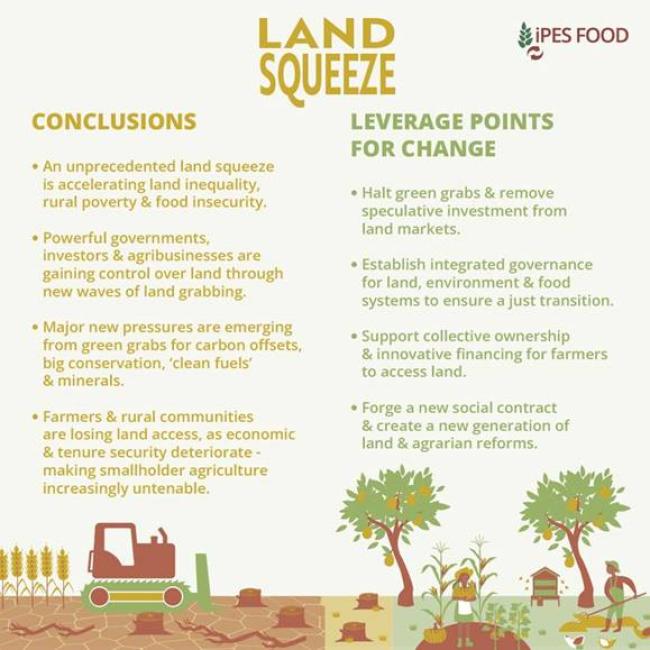The International Panel of Experts on Sustainable Food Systems (IPES-Food) report highlights a two-decade trend of soaring land prices, land grabs, and carbon schemes that are creating a severe ‘land squeeze.’ This phenomenon is threatening farmers and food production globally.

Huge amounts of farmland are being made available for carbon offsets and other forms of ‘green grabbing’. Around 20% of large land deals are now green grabs, often excluding local land users and small-scale producers. Governments have committed vast areas for carbon removal initiatives, with carbon and biodiversity offset markets growing rapidly, valued at USD 414 billion in 2023 and projected to reach USD 1,800 billion by 2030. Land is also being repurposed for extractive industries and mega-developments, particularly due to a global mining boom for critical minerals.
Land inequality is on the rise in all world regions. While the farmers and communities who deliver food security and steward the land are being forced out.
The iPES FOOD report identifies transformative actions needed to reverse the land squeeze and achieve meaningful and equitable access to land.
Recommendations for Policymakers:
· Implement integrated governance for land, environment, and food systems to prevent green grabs and prioritize human rights in transition strategies. Promote community-managed land systems.
· Stop speculative capital in land markets and ensure land ownership by farmers through caps on investment, rights of first refusal, and support for collective ownership models.
· Establish a new social contract with comprehensive land and agrarian reforms, including secure land access, structural support for small-scale production, farmer pensions, insurance, debt relief, and ending harmful trade practices.

| Year of publication | |
| Publisher | IPES-Food |
| Geographic coverage | Global |
| Originally published | 23 May 2024 |
| Knowledge service | Metadata | Global Food and Nutrition Security | Sustainable Food Systems | Carbon offsetLand tenureResponsible agricultural investment |
| Digital Europa Thesaurus (DET) | Agricultural landland useforeign investmentgreen investment |
